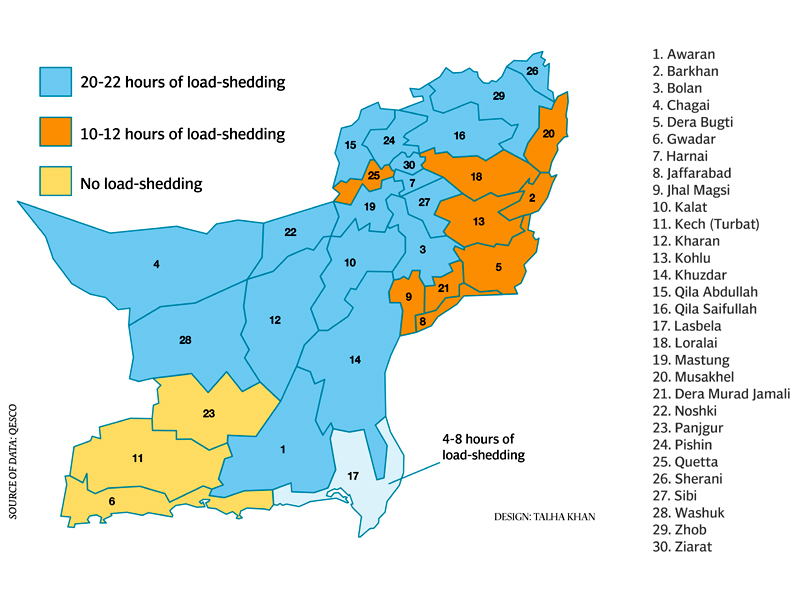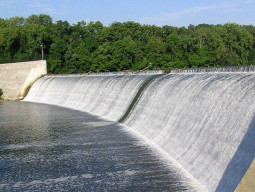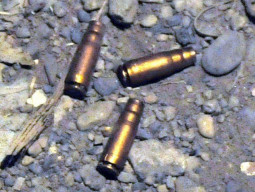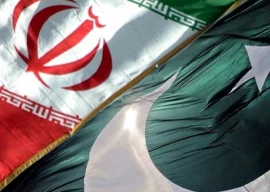
The district of Kharan has been without electricity for the last 10 days, a sitting member of the Balochistan Assembly said on Saturday.
Karim Nausherwani, who was elected from the same district, said that the damaged transmission lines had gone unrepaired. “These transmission lines will not be completed even in ten years,” said Nausherwani in a sarcastic tone, noting that the National Transmission Dispatches Company (NTDC) had delayed the repair of the damaged transmission lines.
Four transmission lines near Mach and Sibi were cut after severe thunderstorms last week and now only 370 MW is available to the province against the total need of 1,610 MW, creating a huge shortfall of 1,240 MW. “Because there’s no power,” Nausherwani said, “the people of Kharan don’t even have water now”.
The power crisis in Balochistan has worsened as the electricity demand has increased as mercury rises and as thunderstorms damage transmission lines.

Currently, Quetta is witnessing 10 to 12 hours of load-shedding, while in the other 16 districts of Balochistan, electricity is available merely for two hours and on a good day, for four hours.
However, according to the Quetta Electric Supply Company (Qecso), the crisis will not be resolved even after the repair as they would only be able to supply a total of 650 MW. “There will still be a shortfall of at least 950 MW,” said Mohammed Afzal, the distribution company’s spokesperson.
Power supply to the Makran division was restored on Friday after a six-day blackout. Makran —comprising Gwadar, Kech and Panjgur – is supplied electricity by Iran. This is not connected to the national grid station. “Makran is provided with 70 MW against the total need of 75 MW but the supply is uninterrupted,” Qesco officials said. But there is practically no load-shedding in the division, only fluctuation.

The Lasbela district is getting electricity from Karachi while Naseerabad, Jhal Magsi, Jaffarabad and Dera Murad Jamali from Sukkur Power Company. Similarly, Loralai, Barkhan, Musakhail and Kohlu are supplied electricity from Mutlan Electric Power Company (Mepco). Quetta and 16 other districts are getting electricity from the Guddu-Uch-Sibi transmission line, which has been damaged.
The federal government announced that it will complete the Khuzdar-Daddu and Loralai-Dera Ghazi Khan transmission lines on April 30 but the construction work is still under way on either transmission lines. Chief Minister Dr Abdul Malik has promised that the power crisis will be reduced after the completion of the transmission lines.
However, Nausherwani accused the Water and Power Development Authority (Wapda) of punishing the people of Balochistan on the pretext of faults and thunderstorms. “Every year during the months of May, June and July, the crisis deepens, but they keep giving excuses. Sometimes, officials say power pylons were damaged by thunderstorm or sometimes by militants,” he said.
According to Qesco, Balochistan generates 2,200 MW against the total need of 1,610 MW but that goes to the national grid station, which later distributes the electricity across the country. Will the situation get any better? “The shortfall will not end unless the transmission lines are completed. But we are also looking for other resources,” said Qesco chief Balighuz Zaman.
Published in The Express Tribune, May 18th, 2014.
COMMENTS (7)
Comments are moderated and generally will be posted if they are on-topic and not abusive.
For more information, please see our Comments FAQ


1725030039-0/Untitled-design-(2)1725030039-0-165x106.webp)
1725366721-0/kyle-(1)1725366721-0-165x106.webp)
1731410017-0/BeFunky-collage-(45)1731410017-0-165x106.webp)












sharif govt (and no i am not asking for an army coup, i mean nawaz sharif) has focused on the right set of problems and also are aware that pakistan needs to be strong. The only issue is they should also work on making society better. Do not leave to the religious circles to train people on how to behave but make it an institutional policy to do so.
@Timorlane:
As a Karachiite, I must say we have it really good in Karachi - those who pay for electricity get it, those who don't suffer, which is how it should be. Most middle-class areas (I can speak from personal experience for North Nazimabad, Gulshan-e-Iqbal and Gulistan-e-Jauhar) that pay their bills regularly are exempt from loadshedding or suffer for no more than 3 hours daily, meanwhile until recently, even some parts of DHA had 4-6 hours of loadshedding because the waderas there considered themselves above paying bills. That's the beauty of a well-managed private corporation - there's no room for discrimination.
Balochistan generates enough energy to meet its needs but it is distributed to other parts of the country? Why? This is injustice. Why should they suffer? First that electricity should be used to solved the needs of the Baloch then exported to other parts of the country if there is extra.
In Balochistan, interior sind and KPK they do not pay power bills and then want power Why ?? We pay all the bills and yet face load shedding in good parts of Karachi